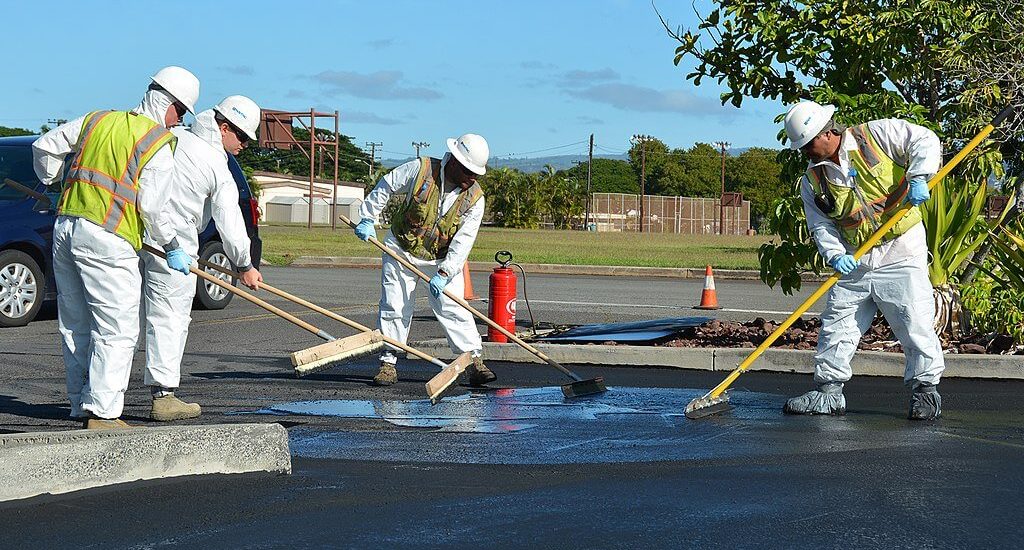The driveway is one of the areas in your home that takes a daily beating. And over time, your pavement falls apart as the asphalt binder breaks down due to the weight of your vehicle and the scorching heat of the sun. The rain and snow can also cause your driveway to crumble since the water can seep through the pavement, causing it to crumble down and develop cracks.
So to protect your investment, your driveway must be treated with sealcoating to prevent splits and fissures from forming and to make the surface look new for many years to come.
Read more as we’ll provide basic information about asphalt sealcoating in today’s entry.
Sealcoating Defined
Sealcoating is the method of applying a protective coating over an asphalt-based paved surface to provide a layer of “shield” so that the surface will be kept from natural elements like rain, snow, and ultraviolet rays from the sun. It is also a necessary process to improve the surface quality of paved areas.
Aside from that, a pavement coating protects the concrete, the pavement, and the surrounding ground from deterioration due to weather, vehicle traffic, foot traffic, etc.
The Products To Be Used For Sealcoating
The 2 most common products used for sealcoating are seal coats and rejuvenators.
A seal coat is a popular choice between the 2 because it is more resistant to element exposure and traffic abuse. It also includes sand to improve the traction of your driveway. In addition, this product is also environment-friendly since it does not emit volatile organic compounds, which are human-made chemicals which can be easily vaporized in the air. And it smells better and less irritating to the skin compared to rejuvenator products.
Treating your pavement with seal coat only requires a thin coat of layer, because if you apply too many layers the coat will peel off like many layers of house paint.
On the other hand, a rejuvenator is typically recommended for old and dried out pavements as it contains oil compounds that restore the appearance of the asphalt surface. This product is often applied generously to allow the mixture to be soaked into the pavement, which also eliminates the risk of delamination that usually happens when you have a thick layer of seal coat.
To be able to determine the right product to use according to your situation, we suggest you contact a reputable and reliable asphalt paving company like A-Rock Asphalt Services as they can provide the best recommendations according to your sealcoating needs.
Why Is Sealcoating Necessary?
With sealcoating, your pavement is protected from the oil stains dripping from your car. Likewise, it blocks away the moisture that causes weak points for pot holes to build up, which compromises your pavement’s structural integrity.
Aside from that, this process slows oxidation. If the driveway is left untreated, the ultraviolet rays from the sun deteriorate the binding agent (asphalt). And the same thing happens if the pavement is exposed to air, heat, and rain. That is why it is recommended to sealcoat your pavement so it will have poor resistance from these harmful elements.
And lastly, sealcoating is also necessary to restore the appearance of your driveway. Even if your pavement is free from cracks, potholes, and stains, the UV from the sun will still cause the surface to fade from shiny black to disgusting grey. So sealcoating will bring back the old appearance of your driveway and make it look like new again.

